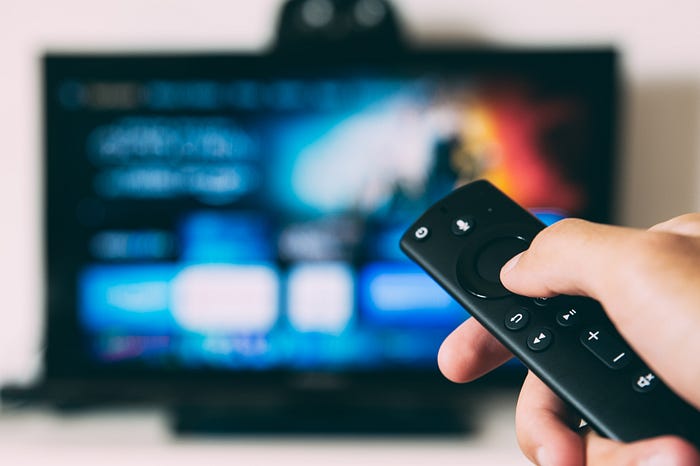Strategies for Overcoming Pornography Addiction: A Comprehensive Guide
Written on
Understanding Pornography Addiction
Research indicates that there are effective methods for combating excessive consumption of pornographic content.
Therapeutic approaches such as counseling, medication, and hypnosis are often employed to manage harmful or excessive habits surrounding pornography. While it may not be classified as a formal medical condition, those who struggle with excessive pornography may experience strong cravings, neglect their responsibilities, and engage in self-destructive behaviors to sustain their habit.
Some experts link the addictive nature of online pornography to its "triple A" effect: accessibility, affordability, and anonymity. These factors can facilitate the development of a problematic routine, making it challenging to break free from the cycle.
Although pornography addiction has not been formally recognized as a mental health disorder, various therapeutic solutions are available to address its negative impacts. According to Dr. Rene Sorrentino, medical director at the Institute for Sexual Wellness, "most therapeutic programs incorporate psychosocial, cognitive behavioral, psychodynamic, and pharmacological techniques."
Continue reading to discover five therapeutic approaches that can help manage problematic porn consumption and its effects.
Signs of Addiction
Addictions often manifest as a loss of control, leading to serious repercussions. You should reflect on your viewing habits if you find yourself:
- Increasing the time spent consuming pornography.
- Feeling a compulsion for a "fix" that provides a temporary high.
- Experiencing guilt about your porn consumption.
- Spending excessive hours on pornographic websites at the expense of responsibilities or sleep.
- Pressuring your partner to engage in pornographic activities despite their discomfort.
1. Behavioral Modification Techniques
Dr. Daniel Sher, a clinical psychologist, advocates for Cognitive Behavioral Therapy (CBT) to help individuals understand their actions and triggers.
"CBT helps individuals recognize, challenge, and alter thought and behavior patterns that contribute to porn addiction," Sher explains. He also employs motivational interviewing to encourage clients to evaluate the pros and cons of their addiction and guide them toward positive life changes. Additionally, incorporating mindfulness practices can help individuals regain control over their urges.
2. The Benefits of Group Therapy
Julia Alperovich, a therapist in California, suggests that group therapy can be instrumental in overcoming past traumas linked to porn addiction.
"Building connections with others and experiencing emotional intimacy can be powerful in addressing this type of addiction," Alperovich notes. Dr. David A. Goldberg adds that focusing on trauma can significantly alter the perception of a pornography addict.
3. The Role of Hypnosis
Venka de Rooij, a psychotherapist in London, utilizes innovative techniques to support patients struggling with pornography addiction. Hypnotherapy, for example, employs guided meditation to induce a trance state where individuals can confront underlying issues.
"Clinical hypnotherapy aims to access the subconscious to identify the root cause of the addiction," Rooij states.
4. The Importance of Finding Alternatives
Rooij also emphasizes the need to replace negative habits with healthier alternatives.
"Something constructive must be introduced to help the addict adjust and prevent future relapses," Rooij advises. Jacob Kountz, a therapist in California, agrees, highlighting the importance of discovering positive alternatives that can lead to self-improvement.
5. Medications as a Potential Treatment
In certain cases of excessive pornography consumption, medications may prove beneficial. Dr. Sorrentino explains that treatments can focus on inhibiting selective serotonin reuptake to address compulsive sexual behaviors and related mental health issues.
SSRIs, often prescribed for depression, can increase serotonin levels, a neurotransmitter that regulates mood. "The rationale for using SSRIs is supported by animal studies showing a decrease in sexual behaviors with elevated serotonin levels," Sorrentino explains.
Conclusion
Occasional or even regular porn consumption does not inherently signify a problem. However, if you find yourself struggling to quit, it is advisable to seek assistance from a mental health professional who specializes in compulsions, addictions, and sexual dysfunctions. A qualified therapist can aid you in overcoming harmful behaviors and enhancing your overall quality of life.
Sources
- Everything About Pornography 'Addiction', Medically reviewed by Timothy J. Legg, Ph.D., PsyD
- Pornography Addiction: Treatments by WebMD
- Substance Addiction vs. Behavioral Addiction, NCBI
- Definition of Addiction, ASAM

Chapter 1: Effective Strategies for Recovery
This video titled "How to Make an Effective Plan to Overcome Pornography" offers insights into creating actionable steps to combat porn addiction.
Chapter 2: Understanding the Nature of Addiction
In this video, "How to Overcome Pornography Addiction," various strategies are discussed for addressing and overcoming the challenges associated with pornography consumption.